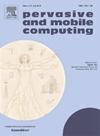具有经验见解的联合学习:利用梯度历史经验来实现性能公平性
IF 3.5
3区 计算机科学
Q2 COMPUTER SCIENCE, INFORMATION SYSTEMS
引用次数: 0
摘要
性能公平性一直是联邦学习(FL)中的一个关键问题,然而,追求性能一致性可能导致一种权衡,即牺牲性能良好的客户机的准确性,以提高性能较差的客户机的准确性。为了确保FL过程中所有参与者的公平对待和无偏结果,我们提出了FedMH算法,这是一种公平快速的多梯度下降联邦学习算法,具有增强的梯度历史经验信息。我们从公平和收敛的角度对联邦货币市场基金进行了理论分析。在四个联邦数据集上进行了广泛的实验,揭示了与最先进的基线相比,FedMH取得了显着的改进。此外,与现有的先进基线相比,实验结果突出了FedMH在细粒度分类问题上的优越性能。总之,适当地利用梯度历史经验信息有助于提高FL的有效性和公平性,使其更适合于大规模和异构的分布式环境。本文章由计算机程序翻译,如有差异,请以英文原文为准。
Federated learning with empirical insights: Leveraging gradient historical experiences for performance fairness
Performance fairness has always been a key issue in federated learning (FL), however, the pursuit of performance consistency can lead to a trade-off where the accuracy of well-performing clients is compromised to enhance the accuracy of poor-performing clients. To ensure equitable treatment and unbiased outcomes for all participants in the FL process, we propose FedMH, a fair and fast multi-gradient descent federated learning algorithm with reinforced gradient historical empirical information. We have conducted a theoretical analysis of FedMH from the perspectives of fairness and convergence. Extensive experiments are performed on four federated datasets, revealing significant improvements achieved by FedMH compared to state-of-the-art baselines. Moreover, the experimental findings highlight FedMH’s superior performance in fine-grained classification problems when compared to existing advanced baselines. In brief, the proper utilization of gradient historical empirical information helps improve the effectiveness and fairness of FL, making it more suitable for large-scale and heterogeneous distributed environments.
求助全文
通过发布文献求助,成功后即可免费获取论文全文。
去求助
来源期刊

Pervasive and Mobile Computing
COMPUTER SCIENCE, INFORMATION SYSTEMS-TELECOMMUNICATIONS
CiteScore
7.70
自引率
2.30%
发文量
80
审稿时长
68 days
期刊介绍:
As envisioned by Mark Weiser as early as 1991, pervasive computing systems and services have truly become integral parts of our daily lives. Tremendous developments in a multitude of technologies ranging from personalized and embedded smart devices (e.g., smartphones, sensors, wearables, IoTs, etc.) to ubiquitous connectivity, via a variety of wireless mobile communications and cognitive networking infrastructures, to advanced computing techniques (including edge, fog and cloud) and user-friendly middleware services and platforms have significantly contributed to the unprecedented advances in pervasive and mobile computing. Cutting-edge applications and paradigms have evolved, such as cyber-physical systems and smart environments (e.g., smart city, smart energy, smart transportation, smart healthcare, etc.) that also involve human in the loop through social interactions and participatory and/or mobile crowd sensing, for example. The goal of pervasive computing systems is to improve human experience and quality of life, without explicit awareness of the underlying communications and computing technologies.
The Pervasive and Mobile Computing Journal (PMC) is a high-impact, peer-reviewed technical journal that publishes high-quality scientific articles spanning theory and practice, and covering all aspects of pervasive and mobile computing and systems.
 求助内容:
求助内容: 应助结果提醒方式:
应助结果提醒方式:


